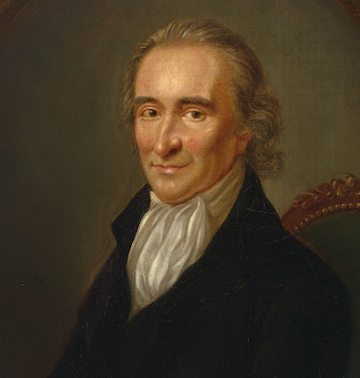 Printed religious text, like Gutenberg’s 200-odd bibles (In latin. 42 lines per page) put the “word of God” into the hands of the laity and were shipped all over Europe. At the time the press was invented, Oxford University, the seat of all knowledge in the English-speaking world was already 200 years old. Yet it had just 122 books in its library. 50 years later, there were 10 million books in circulation. Cheap books meant education spread beyond the Church and the Nobility and down to the masses.
Printed religious text, like Gutenberg’s 200-odd bibles (In latin. 42 lines per page) put the “word of God” into the hands of the laity and were shipped all over Europe. At the time the press was invented, Oxford University, the seat of all knowledge in the English-speaking world was already 200 years old. Yet it had just 122 books in its library. 50 years later, there were 10 million books in circulation. Cheap books meant education spread beyond the Church and the Nobility and down to the masses.
The press is credited with creating a middle class of merchants and tradespeople who taught themselves new skills and sold services and wares, sometimes even getting rich as the landed aristocracy.100 years after Gutenberg, one-time reports of a current event, called “news books” appeared, reporting on the eruption of Mt. Vesuvius, for instance. By 1604, the first newspaper appeared in Antwerp, Belgium: the Nieuwe Tijdingen (“New Tidings”)
 Martin Luther Luther translated the bible out of the scholar’s language, Latin, into the commoner’s language: German. Luther’s “Protestant Reformation”, challenged the authority of the Catholic Church to sell indulgences – forgiveness of sins – and shook the foundations of the all-powerful Roman Catholic Church.
Martin Luther Luther translated the bible out of the scholar’s language, Latin, into the commoner’s language: German. Luther’s “Protestant Reformation”, challenged the authority of the Catholic Church to sell indulgences – forgiveness of sins – and shook the foundations of the all-powerful Roman Catholic Church.
So, the real revolution was not technological, but intellectual or at least social.
.
 Ultimately, access to new ideas and to scientific and other books allowed people to learn new skills and to challenge authority on its own terms. Thomas Paine’s “Common Sense”, which argued a continent the size of North America should not be ruled by a tiny island, was a best-seller of the American Revolution. Colonists bought an estimated 10,000 copies. Cheaply printed, easily bought, Paine’s book built support for the American uprising against British rule. BUT the printed word and mass-produced books also introduced the concept of mass deceptions.
Ultimately, access to new ideas and to scientific and other books allowed people to learn new skills and to challenge authority on its own terms. Thomas Paine’s “Common Sense”, which argued a continent the size of North America should not be ruled by a tiny island, was a best-seller of the American Revolution. Colonists bought an estimated 10,000 copies. Cheaply printed, easily bought, Paine’s book built support for the American uprising against British rule. BUT the printed word and mass-produced books also introduced the concept of mass deceptions.
.
Printing was fast, but distribution was still slow: by ship or horse. The Treaty of Ghent ended the war of 1812 between the U.S. and Great Britain on Dec. 24, 1814. But because word did not reach U.S. Troops in time, the battle of New Orleans was fought 15 days after the war ended and 2,000 soldiers were killed. But all that would change… 370 years after Gutenberg with the invention of the telegraph and Morse code.
.
.
